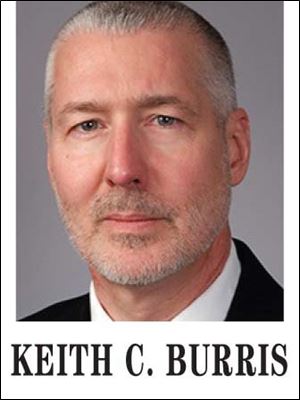
What if it is a Mac-Collins mayor’s race?
Conventional wisdom about mayoral finalists may not be wise.
8/15/2013
The conventional wisdom about the Toledo mayor’s race is that the two finalists will be Mayor Mike Bell and Lucas County Auditor Anita Lopez.
Conventional wisdom is often wrong in life and sports, but less often wrong in politics. That’s because conventional wisdom in politics tends to be based on known and calculable factors, such as fund-raising, incumbency, and special-interest backing.
Every once in a while, the voters rise up and rebel. And when they do, it’s glorious.
But too often, voters do as they are expected to do, and the prophecy is self-fulfilling.
Mayor Bell is a powerful and commanding incumbent with a big fund-raising advantage. Ms. Lopez also holds a visible office, has plenty of campaign funds, and strong union backing.
Though Joe McNamara also has done well raising funds, and D. Michael Collins will have significant labor support, neither seems to be able to land a hard punch on Mr. Bell or Ms. Lopez. Some think that’s because Mr. McNamara and Mr. Collins are splitting the reform vote and the reform message.
What is that vote? What is that message?
One way to think of the reform constituency is everyone is not part of a special interest. Mayor Bell has allied himself with business interests and with Ohio’s governor, who represents those interests. The great anger that one finds in the city toward the mayor comes from the perception that he has aligned himself with those interests exclusively.
Ms. Lopez seems to have aligned herself with labor — exclusively.
The reform message might be most succinctly put this way: Pay attention to neighborhoods.
As LISC — the Toledo office of the Local Initiatives Support Corp. — put it in a short policy paper: “Toledo’s future is linked to its neighborhoods.”
The city has done a good job of revitalizing a part of the downtown, but now the critical need has shifted to our neighborhoods.
Indeed, one could concede to the mayor his major campaign talking point — that he is the fiscal savior of this city.
But the fiscal crisis is past. The neighborhood crisis — the deterioration of homes, streets, and public safety — is now.
Some people say Mr. Collins and Mr. McNamara are more substantive than the other two. That’s not really it. The key, and the tragedy for this campaign, is that both are neighborhood candidates. Mr. Collins has based his whole political career on neighborhood service. Mr. McNamara has based his campaign on neighborhood reinvestment. Because neither is wholly focused on a special interest — business or labor — both see the need at this moment: the very complex task of lifting up the neighborhoods.
A small, solid for-instance comes from a young long-shot candidate for city council, Sean Nestor. He wants to create a foreclosure registry to discourage banks from evicting families. Of course, that registry would do no good if no one at Government Center goes to bat for those families.
But we ought to be discussing ways to combat foreclosure and blight in a race for mayor. That could happen in a McNamara-Collins general election race.
Alas, such a compelling race is unlikely to be, since neither Mr. Collins nor Mr. McNamara has run a very astute campaign thus far. If there had been just one of them, it might be different.
Keith C. Burris is associate editor of The Blade.
Contact him at: kburris@theblade.com or 419-724-6266.